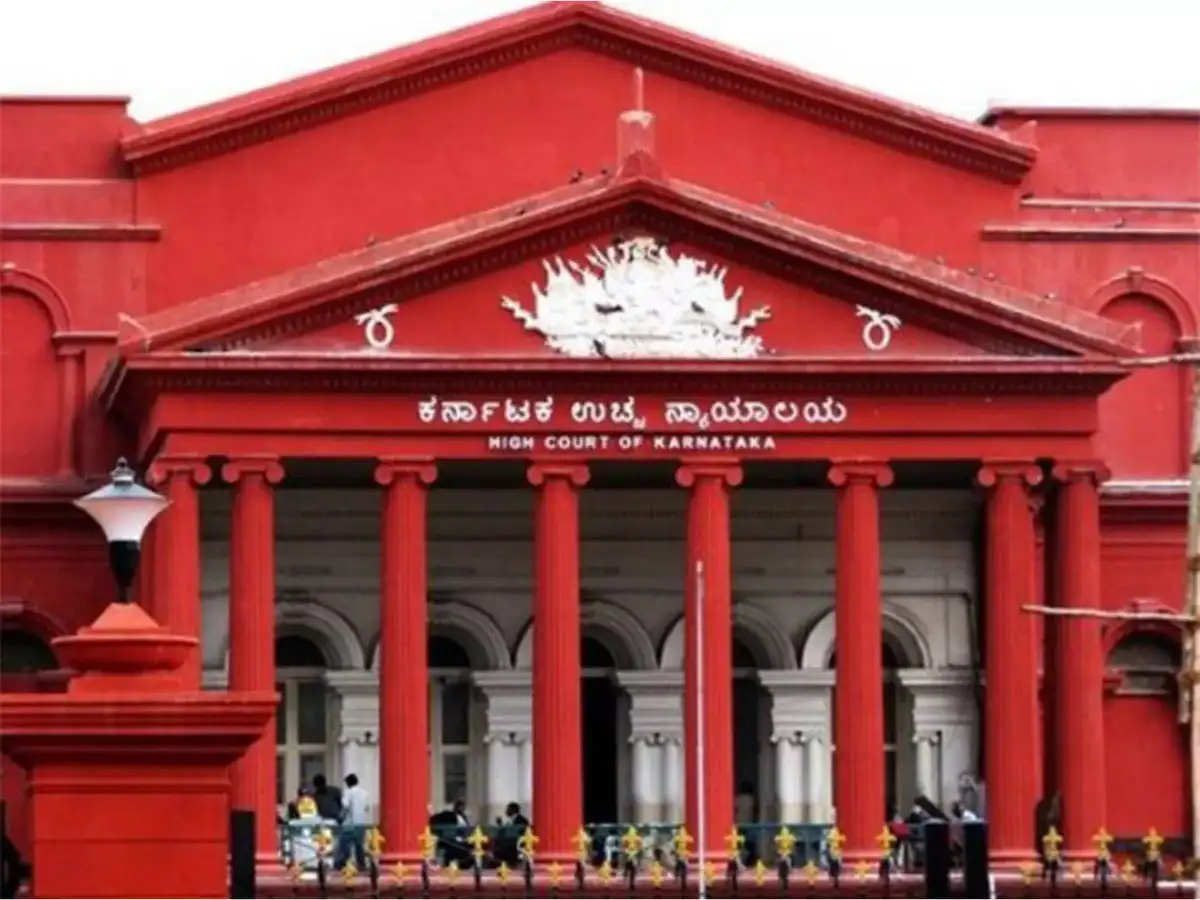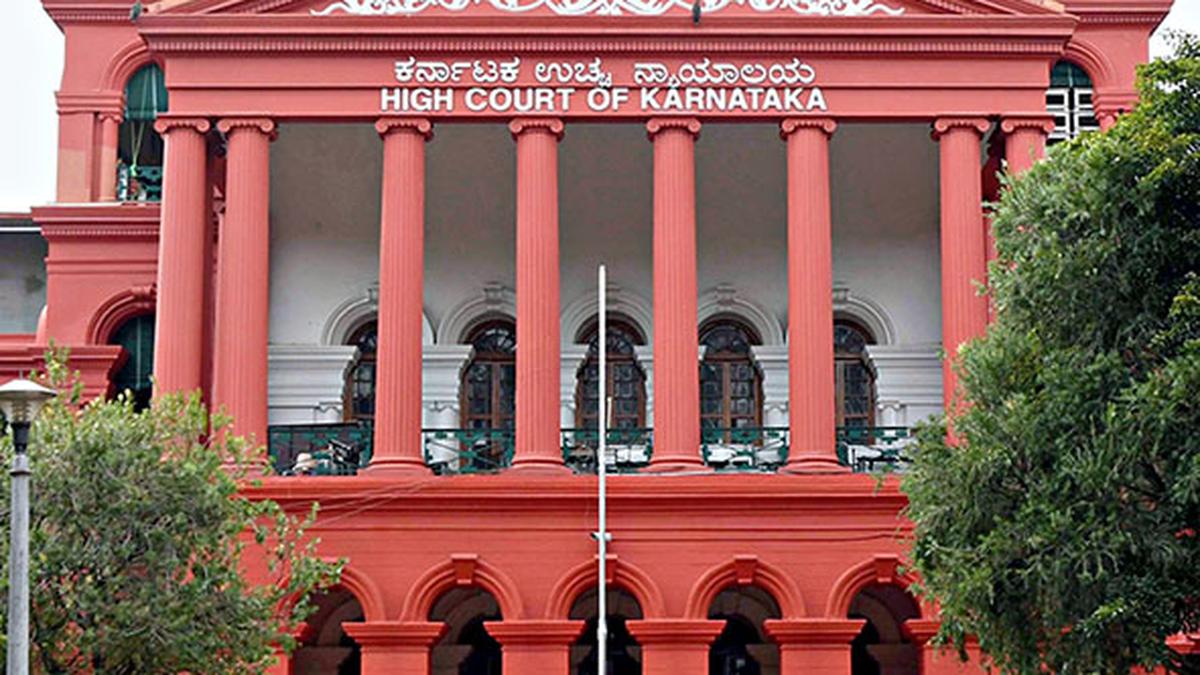The Karnataka High Court on Thursday refused to stay the ongoing Social and Educational Survey initiated by the State government, despite multiple petitions seeking its suspension. Petitioners argued that the exercise lacked proper legislative backing and infringed upon individual privacy rights, but the bench stated that halting the survey midway would create severe administrative and logistical disruptions. The court emphasized that interim relief could not be granted without detailed examination of the constitutional, legal, and procedural issues raised. This decision has generated widespread debate over governance, legality, and public trust in data collection.
Opponents of the survey highlighted serious flaws in the implementation, citing that enumerators struggled to locate households using RR numbers of electricity meters and that citizens often felt confused about the purpose. Concerns were raised over data reliability, transparency, and the possibility of misusing sensitive personal information. Critics warned that inaccurate or hastily collected data could influence crucial policy decisions and risk deepening social divides. On the other hand, they stressed that such a large-scale exercise, undertaken without clear guidelines, could damage faith in government initiatives and lead to potential constitutional challenges if unchecked by proper legal oversight.
The State government, however, defended its move, describing the survey as a vital step in addressing socio-economic disparities and framing welfare policies more effectively. The Advocate General assured the bench that the survey was being carried out with safeguards to protect confidentiality and that personal details would be used strictly for administrative purposes. Officials further argued that the exercise would enable equitable distribution of resources, better planning in education and healthcare, and targeted interventions for marginalized communities. The court instructed the State to ensure maximum transparency while preparing its counter-affidavit.
The Karnataka High Court’s refusal to stay the Social and Educational Survey has brought relief to the government, but it has not ended the debate surrounding the exercise. Many believe that while the court has allowed the survey to proceed, the underlying legal and constitutional questions remain unresolved. This creates a situation where both supporters and opponents of the survey are preparing for a long battle in court. The political atmosphere in Karnataka has also intensified, with parties taking contrasting positions on the survey’s validity and necessity.
For the ruling government, the survey represents a major policy initiative aimed at mapping socio-economic realities across caste, class, and educational backgrounds. Officials claim that data from such an exercise will help bridge inequality and bring more effective schemes into practice. However, critics say the government’s eagerness to push forward without a clear legislative framework raises doubts about its true motives. Many suspect that the findings may influence political calculations, particularly in shaping welfare distribution and caste-based policies in the near future.
Legal Context and Precedents
Legal experts pointed out that this case could become a landmark ruling on the scope of State surveys and the necessity of legislative sanction. Karnataka has a history of attempting caste and socio-economic surveys, which often became politically sensitive. Critics recalled that earlier surveys faced backlash over methodology and transparency, with data often withheld from publication due to controversies. By declining to stay the survey, the court has allowed the government to continue data collection but kept the door open for further judicial scrutiny. This dual approach maintains administrative continuity while preserving constitutional checks and balances.
Supporters of the government view the decision as a pragmatic move to ensure uninterrupted progress in welfare planning. They argue that halting the survey would waste resources already invested and delay much-needed reforms in education and social justice. Critics, however, believe that the court’s refusal to intervene now does not absolve the government of ensuring due process. They insist that the upcoming hearings must rigorously address privacy, data integrity, and the potential political misuse of the findings, which remain central concerns for both citizens and policymakers alike.
The issue of privacy has become one of the central points of contention in this debate. Petitioners stressed that the survey lacks adequate safeguards for citizens’ personal information and that confidentiality measures remain vague. Although the State has assured that data will be protected, experts fear that without a strong data protection law at the State level, sensitive details could be misused. The court, while not staying the survey, has urged the government to conduct the exercise transparently to avoid any breach of trust.
On the ground, enumerators continue to face practical challenges in conducting the survey. Many have reported difficulties in locating households based on RR numbers of electricity meters, a system that has confused both workers and residents. Instances of missing records, duplicate entries, and unclear identification markers have slowed down the process. Despite these hurdles, officials have directed teams to continue the exercise with greater clarity, promising technical assistance where needed to prevent inaccuracies in data collection.
Community reactions to the survey remain mixed, with some groups welcoming the effort as long overdue and others strongly opposing it. Marginalized communities see it as an opportunity to bring attention to their socio-economic conditions, potentially influencing future welfare schemes in their favor. Conversely, some caste and community leaders fear that the data could be politically weaponized, leading to new divisions rather than social equity. This polarization has made the survey both socially and politically sensitive in Karnataka.
Academics and policy analysts have weighed in, stating that while data-driven policymaking is essential, the credibility of the survey depends entirely on the methods used. They argue that hurried execution could result in flawed datasets, which would do more harm than good in addressing inequality. Experts call for clear methodological guidelines, independent monitoring, and the eventual release of findings to the public. Without these measures, the entire exercise could face the same fate as earlier surveys that never saw full disclosure.
Meanwhile, opposition parties in Karnataka have seized the opportunity to challenge the government’s approach. They accuse the ruling party of bypassing due process and using the survey as a political tool. Some leaders have demanded that the State legislature formally debate and pass a law backing the survey to ensure legitimacy. Others have argued for a pause until a consensus emerges, warning that continued resistance could lead to protests and further legal challenges in the coming weeks.
Civil society groups have also begun mobilizing around the issue. Rights activists and NGOs emphasize that citizens must be fully informed about why their data is being collected and how it will be used. They argue that voluntary participation, clarity of purpose, and transparent safeguards are essential in a democratic exercise of this scale. Several advocacy groups are preparing to launch awareness campaigns, urging residents to demand accountability and transparency throughout the process.

Looking Ahead
As the case proceeds, all eyes are on how the High Court balances the State’s developmental priorities with the constitutional protections of citizens. The survey has already stirred emotional and political debates across Karnataka, with leaders, activists, and communities closely monitoring developments. The eventual ruling may determine whether such data-gathering exercises need explicit legislative approval or whether executive orders suffice. For now, the survey continues, but the government carries the responsibility of ensuring it is transparent, credible, and respectful of individual rights—standards that will shape its legitimacy and public acceptance in the months ahead.
The broader implications of the case extend beyond Karnataka, as other States are closely watching the developments. If the High Court eventually rules in favor of the government, it may set a precedent for similar socio-economic surveys elsewhere. On the other hand, if the court finds flaws in the process, it could restrict the scope of State-driven data collection in the future. This makes the outcome of the case significant not only for Karnataka but for the entire country’s governance model.
In the immediate term, the State government has been tasked with filing detailed responses justifying the legal and administrative basis of the survey. The High Court’s next hearings will examine these submissions closely, determining whether the process holds up under constitutional scrutiny. Until then, the survey continues, but it does so under a cloud of legal uncertainty and public skepticism. The government now faces the twin challenge of executing the survey efficiently while building confidence among citizens that their rights and privacy are being protected.
The High Court’s decision has also sparked conversations among legal scholars, who argue that the judiciary is attempting to strike a careful balance. By refusing to halt the survey but keeping the case active, the court has ensured that governance is not disrupted while also leaving room for a deeper constitutional review. Scholars note that this approach prevents administrative chaos while maintaining the judiciary’s role as a safeguard of rights, ensuring the government cannot bypass scrutiny in the long term.
For many citizens, the survey has become a subject of daily discussion, with curiosity mixed with apprehension. Some households welcome the enumerators, hoping their participation will translate into more targeted welfare programs. Others remain hesitant, fearing that their data might be misrepresented or leaked. This uneven public response has led to inconsistencies in cooperation, forcing officials to double their efforts in awareness-building. The mixed reactions highlight the importance of communication and trust in carrying out large-scale social exercises.

The State government has meanwhile reiterated its stand that the survey is not politically motivated but purely welfare-oriented. Ministers have stressed that Karnataka requires updated data to address pressing inequalities, particularly in education, healthcare, and employment. They argue that without accurate figures, policy-making remains guesswork, limiting the government’s ability to uplift marginalized groups. By presenting the survey as a foundation for inclusive growth, the government hopes to rally public support even as legal scrutiny continues in the High Court.
Looking forward, the eventual court ruling could redefine the boundaries of executive authority in India’s federal structure. If the survey is upheld without legislative backing, it may embolden States to take up similar initiatives independently. If struck down, however, it could establish a new standard requiring legislative approval for all such exercises. Either way, the case has become a touchstone for debates on governance, data, and democracy, carrying implications that stretch far beyond Karnataka’s borders.
Follow: Karnataka Government
Also read: Home | Channel 6 Network – Latest News, Breaking Updates: Politics, Business, Tech & More

